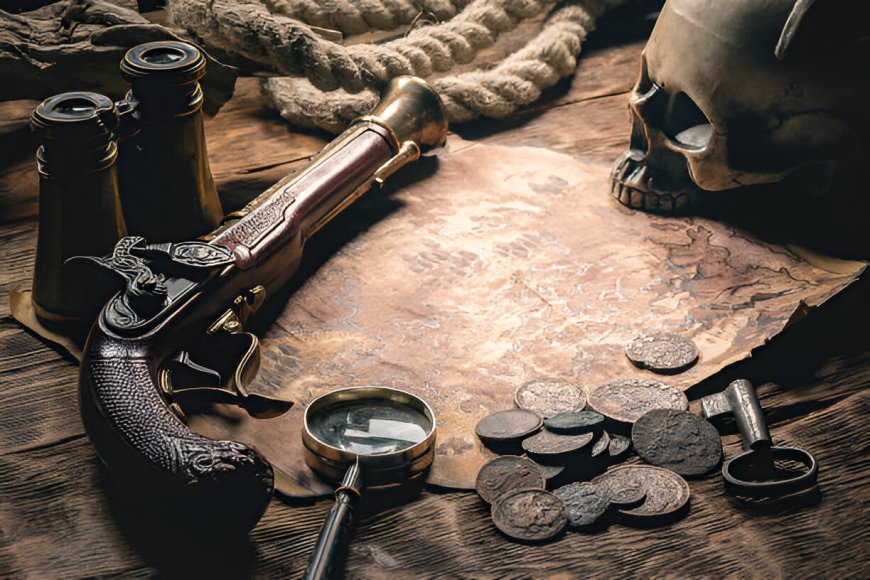Espionage, Alliances, and Betrayals in Colonial America
Explore the secret world of espionage, shifting alliances, and shocking betrayals that influenced the course of the American Revolution in Colonial America.

Colonial America, often remembered for its idealistic Pilgrims and founding fathers, was equally a landscape of treachery, cunning diplomacy, covert operations, and betrayals. Beneath the surface of early American settlements and revolutionary ambitions lay a world of espionage and shifting allegiances that rival any modern-day political thriller. This intricate dance between allies and enemies not only shaped the Revolutionary War but also carved the geopolitical boundaries of what would become the United States.
Shadow War Beneath the Revolution
Though the Revolutionary War is typically viewed through the lens of open battlefields and declarations of independence, an equally vital war was being fought in the shadows. Espionage became a critical tool for both the British and the American rebels. George Washington, understanding the power of intelligence, helped to build one of the earliest organized spy networks in American history: the Culper Ring.
Operating primarily in and around New York City, which was under British occupation, the Culper Ring consisted of civilians and soldiers working undercover to report British troop movements, supply routes, and plans. Using invisible ink, dead drops, and coded messages, these patriots risked their lives to feed Washington the information needed to outmaneuver the British.
Conversely, British intelligence employed loyalists and mercenaries to infiltrate colonial plans. Many of these informants were born in the colonies but remained loyal to the Crown, blurring the lines between traitor and patriot. Espionage wasn’t merely a sideline—it became the heartbeat of the war effort on both sides.
Shifting Alliances Native Nations and European Powers
The question of alliances in colonial America wasn't confined to redcoats and rebels. Native American tribes were pivotal players in the colonial power struggle, often finding themselves caught between European powers and emerging American factions. The Iroquois Confederacy, for instance, found itself divided, with different nations backing different sides in the Revolutionary War. The Mohawk, under Joseph Brant, supported the British, hoping to stop the colonial expansion into their lands, while other Iroquois nations aligned with the Americans or attempted neutrality.
These alliances were rarely straightforward or permanent. Native leaders were acutely aware of the shifting political landscape and often negotiated treaties or alliances out of necessity rather than loyalty. Their decisions were driven by the need to protect their lands, cultures, and people from the encroaching tide of European settlers.
European powers, too, entered the fray with their own agendas. France, Spain, and the Netherlands each played roles that were less about supporting American independence and more about weakening British dominance. France’s alliance with the American revolutionaries, solidified after the Battle of Saratoga, proved decisive. French troops and naval power were instrumental in the eventual American victory at Yorktown in 1781.
But these relationships came with complications. The French expected influence in the new nation, and their involvement shaped diplomatic relations for decades. Spain, though a rival of Britain, hesitated to fully endorse American independence, fearing the precedent it might set for its own colonies.
Double Agents and Infamous Traitors
No conversation about betrayal in colonial America is complete without discussing Benedict Arnold. Once a celebrated American general, Arnold became one of the most infamous traitors in U.S. history after conspiring to surrender the American fort at West Point to the British. Motivated by disillusionment, debt, and personal grievances, Arnold’s betrayal nearly turned the tide of the war in favor of the British.
His British contact, Major John André, was captured and hanged as a spy, while Arnold escaped to British lines and served as a brigadier general for the remainder of the war. Arnold’s name became synonymous with treason, a lasting legacy that continues to stir emotions centuries later.
Yet, Arnold was not alone. Many colonial figures walked the fine line between loyalty and treason. Some shifted allegiances as the tides of war changed, while others operated as double agents, feeding misinformation to the enemy to gain strategic advantages. The concept of loyalty was fluid in a world where personal survival often trumped ideology.
Women in the Shadows
While male figures dominate historical records, women also played critical roles in the espionage networks of colonial America. Agent 355, a mysterious woman associated with the Culper Ring, remains an enigmatic figure. Though her true identity is unknown, she is credited with providing valuable intelligence that led to the arrest of Major André and the exposure of Benedict Arnold's plot.
Women served as couriers, informants, and even saboteurs. Their societal positions often allowed them to pass undetected, making them ideal operatives in covert networks. From tavern owners eavesdropping on British officers to slaves who risked punishment and death to deliver messages, women were unsung heroes in the intelligence war that ran parallel to the physical battles.
The Legacy of Covert Conflict
The espionage and shifting alliances of colonial America left a legacy far beyond the Revolution. These early intelligence operations laid the foundation for America’s future intelligence agencies, including the CIA. They also embedded the notion that national security often depends on what happens in secret rather than what is declared in public.
Furthermore, the betrayals and shifting allegiances offer a cautionary tale about the complexities of human motivation during wartime. Loyalty, often portrayed in black and white, is revealed to be a shade of gray colored by personal, political, and economic pressures.
Understanding the Hidden War Through Literature
To fully appreciate the intricacies of colonial espionage and diplomacy, one must turn to the works of authors who bring this nuanced history to life. Among these, the books by Douglas A. Gosselin about history and war stand out for their rich narrative depth and meticulous research. Gosselin weaves fact with storytelling in a way that illuminates the psychological tensions and ideological struggles of the era. His work does not merely recount events; it immerses the reader in the motives and consequences of espionage and betrayal, providing a lens into the clandestine world that helped shape the birth of a nation.
Conclusion
Colonial America was not just a stage for declarations of liberty and grand ideals—it was a battleground for secrets, deception, and shifting loyalties. Espionage networks operated in silence, alliances formed out of necessity rather than trust, and betrayals threatened to topple revolutions. These hidden dimensions of the era are as vital to understanding America's origins as the battles fought in open fields.
As the young republic emerged, it carried with it the lessons learned not just in the glow of independence, but in the shadows of its darkest intrigues. The real story of colonial America includes not only the patriots who fought with muskets, but also the spies, saboteurs, and double agents who waged a quieter, deadlier war behind enemy lines.
























































































